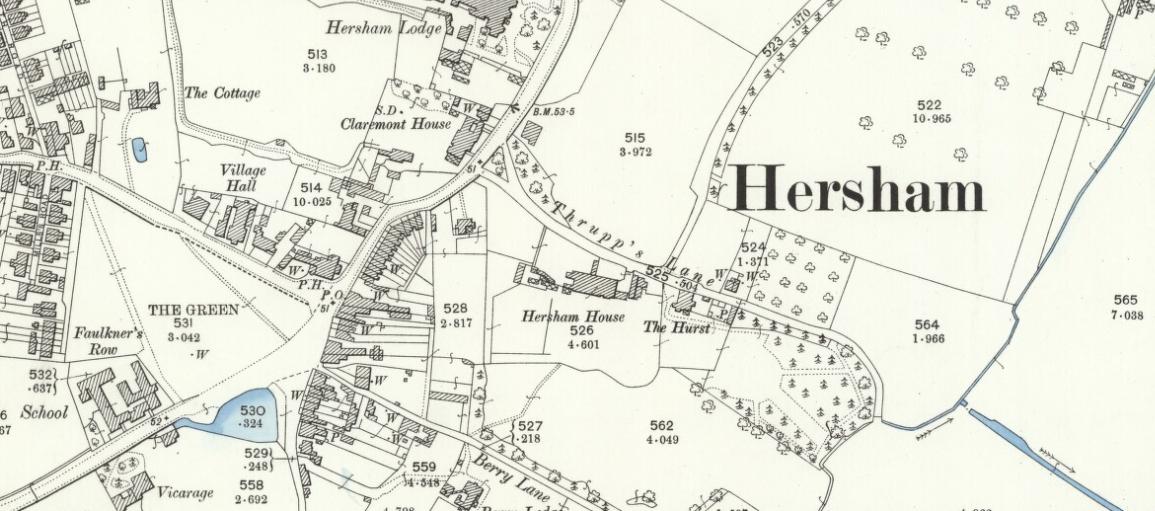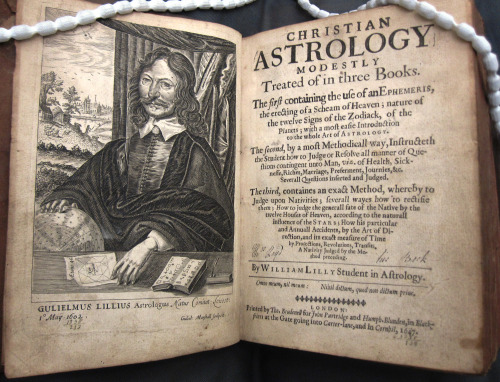Fairies in Seventeenth-Century Surrey April 6, 2018
Author: Beach Combing | in : Modern , trackbackLilly and the Fairies at Hurstwood
In 1652 William Lilly (1602-1681), a wealthy London business man, bought Hurst Wood (aka Hurstwood), at Hersham, Surrey: in the late 19C OS map above note ‘The Hurst’. It was a substantial property including a house with thirteen hearths and eighteen acres of Parkland. So what did Lilly do with this property? Hunt fox; grow those fangled new pineapples under glass; luxuriate with a book by a river…? All of these are possibilities, but one certainty is that Lilly interested himself in the local fairies ‘not many years’ before his death in 1681.
William Lilly
I have described William Lilly above as a ‘business man’. That is a very polite and broad description. He actually spent most of his professional career in drawing up astrological charts, teaching astrology or publishing almanacs: he made lots of money, partly through marriage, partly through acumen. His association with fairies, then, should not be particularly surprising. In his autobiography he discusses how fairies are to be found on the south side of hills; and in 1670 John Aubrey wrote, quoting Lilly as a fairy expert:
not far from Cirencester, there came an apparition, which when asked if it be a good spirit or bad, returned no answer, but disappeared with a curious perfume and most melodious twang. My friend Mr William Lilly believes it was a fairy.
Summoning the Queen of Fairies
As to the event at Hurstwood. Lilly himself tells us:
A very sober discreet person, of virtuous life and conversation, was beyond measure desirous to see something in this nature. He went with a friend into my Hurstwood: the queen of fairies was invocated; a gentle murmuring wind came first; after that, amongst the hedges, a smart whirlwind; by and by a strong blast of wind blew upon the face of the friend; and the queen appearing in a most illustrious glory, ‘No more, I beseech you’, quoth the friend: ‘My heart fails: I am not able to endure longer.’ Nor was he: his black curling hair rose up, and I believe a bulrush would have beat him to the ground: he was soundly laughed at.
The ceremony had to be interrupted because of the failing nerve of one of the participants. Note that a whirlwind came to be connected with fairies in Ireland and Highland Scotland. Interesting seeing it in a part of bucolic southern England.
Fear of Fairies
Lilly was not shocked that someone might go to pieces on the prospect of seeing the queen of the fairies: your blogger confesses to a certain rush of fear when he read the passage above…
I shall acquaint you, that it is not for every one, or ever person that these angelical creatures will appear unto, though they may say over the call, over and over, or indeed is it given to very many persons to endure their glorious aspects; even very many have failed just at that present when they are ready to manifest themselves; even persons otherwise of undaunted spirits and firm resolution, are herewith astonished, and tremble.
So how do you make yourself ready to see the fairies. Lilly had some very definite advice here. The fairies he said loved, in their human friends: ‘Neatness and cleanliness in apparel, a strict diet, and upright life, fervent prayers unto God.’ So Bibles and hairbrushes out.
Anything else on Surrey and fairies: drbeachcombing AT gmail DOT com




